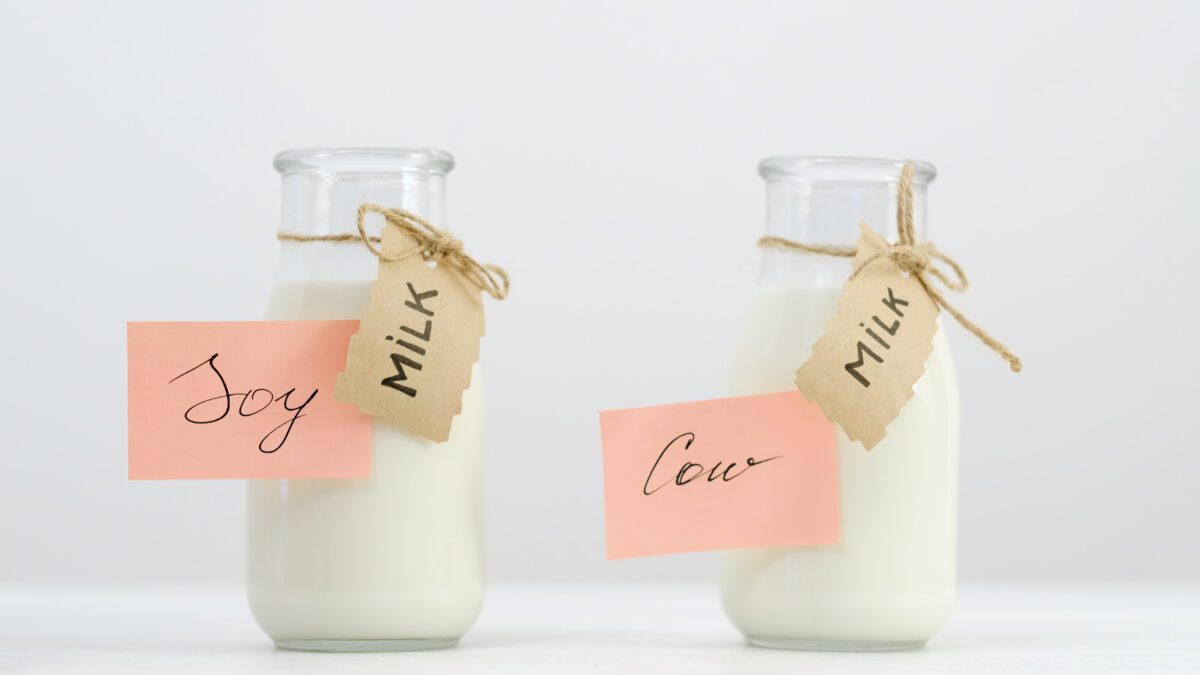

Cow’s milk is a significant source of calcium and vitamins. However, it is not suitable for vegans. Also, people who are either lactose intolerant or allergic to cow’s milk may need to avoid it.
Let’s look at some stats comparing cow’s skimmed milk and Alpro Original Soya Fresh milk:
| Cow’s skimmed milk | Soya Milk | |
| Portion size | 200ml | 200ml |
| Calories | 69kcal | 80kcl |
| Protein | 6.8g | 6g |
| Carbohydrates | 10g | 5.6g |
| of which sugars | 10g | 5.4g |
| Fat | 0.2g | 3.6g |
| Saturated fat | 0.1g | 0.6g |
| Calcium | 248mg | 240mg |
| Vitamin B2 (riboflavin) | 0.2mg | 0.4mg |
| Vitamin B12 | 0.8mcg | 0.8mcg |
| Vitamin D | 1.025mcg (41 IU) | 1.5mcg (60 IU) |
| Ingredients | Pasteurised skimmed milk, 0.1% fat | Water, Hulled Soya Beans (6%), Sugar, Acidity Regulators (Monopotassium Phosphate, Dipotassium Phosphate), Calcium (Calcium Carbonate), Flavouring, Sea Salt, Stabiliser (Gellan Gum), Vitamins (Riboflavin (B2), B12, D2) |
Source: Tesco.com

Both kinds of milk are nutritious, low-fat sources of protein. As soya milk is free from animal products and lactose, it is a suitable alternative for vegans and also for people who are either lactose intolerant or allergic to cow’s milk. However, ideally, you should choose soya milk with no added sugar, salt or additives. Other cow’s milk alternatives include almond milk, rice milk and oat milk.
Written by Victoria Trousse